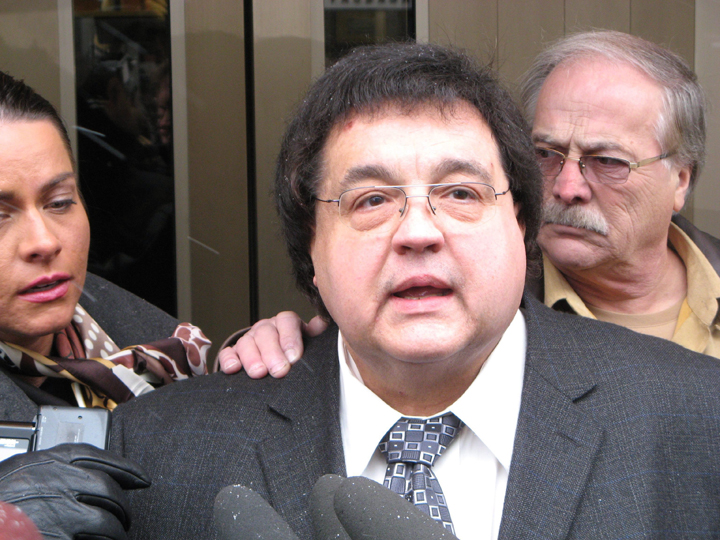WINNIPEG – Frank Ostrowski knows the wheels of justice often turn slowly, but after almost 23 years in prison and another five out on bail, he says he’s relieved Ottawa has finally ordered a review of the murder conviction that put him behind bars in the first place.

“It doesn’t take much to put someone in (jail), but it takes a long time to change things,” said Ostrowski, who has always maintained his innocence.
The 65 year old made a brief appearance in bail court Tuesday after Federal Justice Minster Peter Mackay referred Ostrowski’s case for a conviction review.
Ottawa’s decision to move the case to the Manitoba Court of Appeals comes five years after a Court of Queens’ Bench judge released Ostrowski on bail pending a federal review of his case, citing serious concerns about the 1987 conviction.
Ostrowski was found guilty of ordering the shooting death of Robert Nieman over a drug debt.
He was convicted largely on the testimony of a key witness who had separate charges of cocaine possession stayed.
Ostrowski’s lawyers and the jury were never told about that arrangement and the witness told the trial he did not receive any favours in exchange for his testimony.
“I am satisfied there is a reasonable basis to conclude that a miscarriage of justice likely occurred in Mr. Ostrowski’s 1987 conviction,” MacKay said in a written statement Tuesday.
- Train goes up in flames while rolling through London, Ont. Here’s what we know
- Wrong remains sent to ‘exhausted’ Canadian family after death on Cuba vacation
- Liberals having ‘very good’ budget talks with NDP, says Freeland
- Peel police chief met Sri Lankan officer a court says ‘participated’ in torture
James Lockyer, of the Association in Defence of the wrongfully convicted says it was “a fraud on the court and a fraud against Mr. Ostrowski.”
Ostrowski is the fourth Manitoba man convicted of murder to have his guilt thrown into doubt.
James Driskell was convicted of killing a friend in Winnipeg in 1990 based partly on testimony from a witness who as given tens of thousands of dollars in expense payments as well as immunity on an arson charge. Driskell’s conviction was quashed in 2006.
Kyle Unger was convicted of killing a teenage girl at a rock festival in 1990, based partly on hair samples found at the scene. DNA tests years later showed the hairs did not belong to him.
Thomas Sophonow was found guilty of killing a waitress in 1981 based largely on the testimony of a witness who contradicted in court what she had told police. The defence was not told about the contradiction at the time, and Sophonow spent four years in prison before he was freed.
– With files from The Canadian Press



Comments